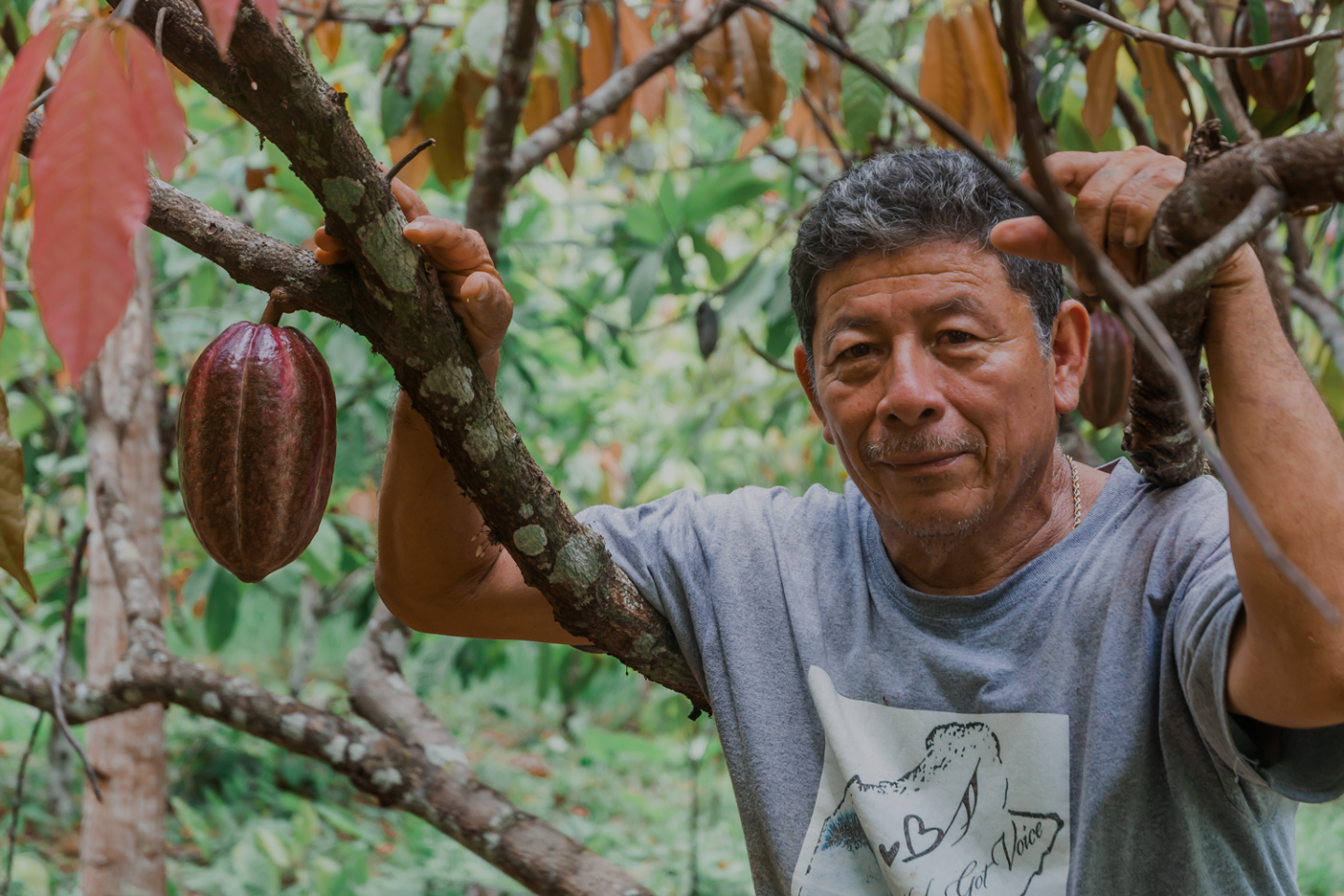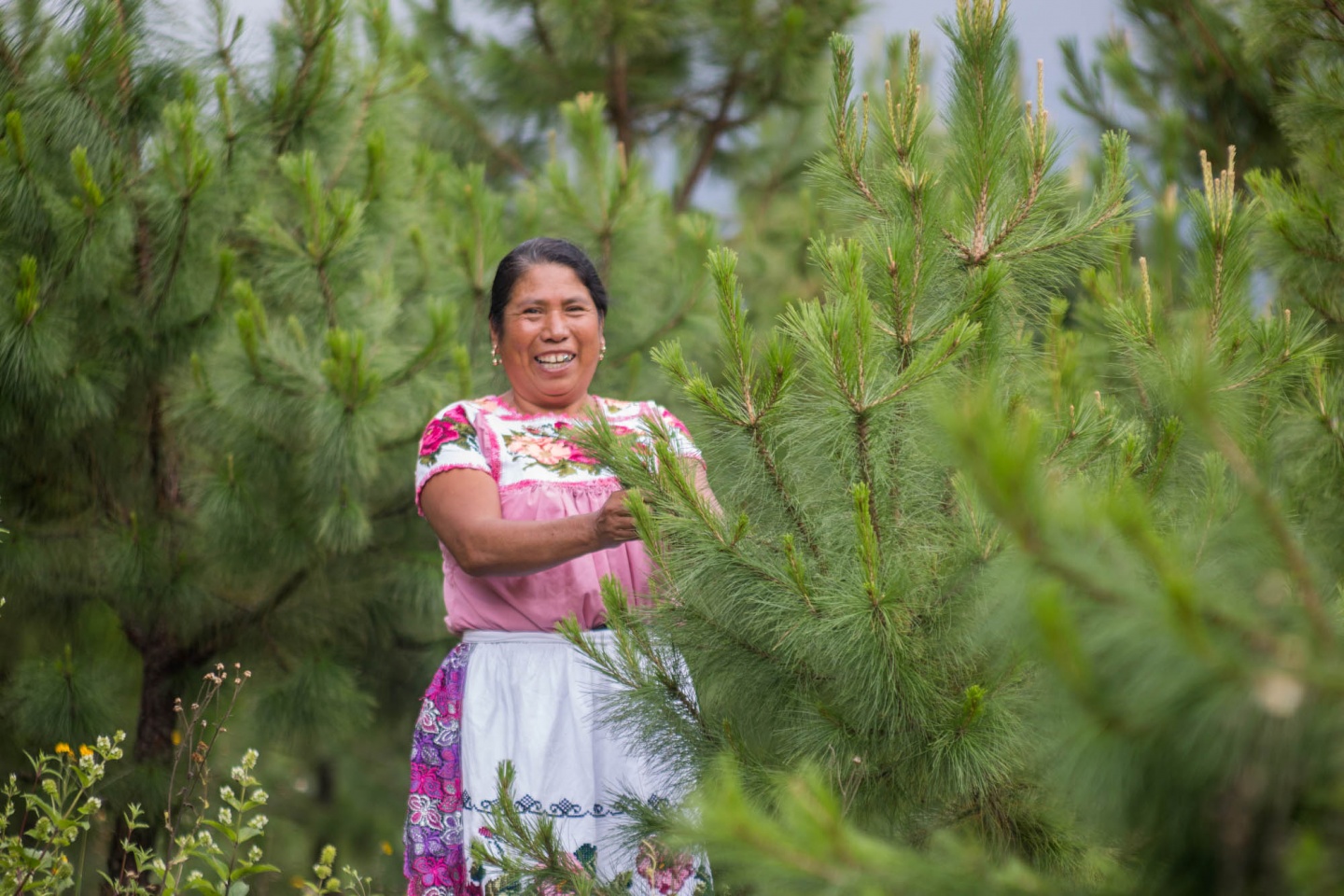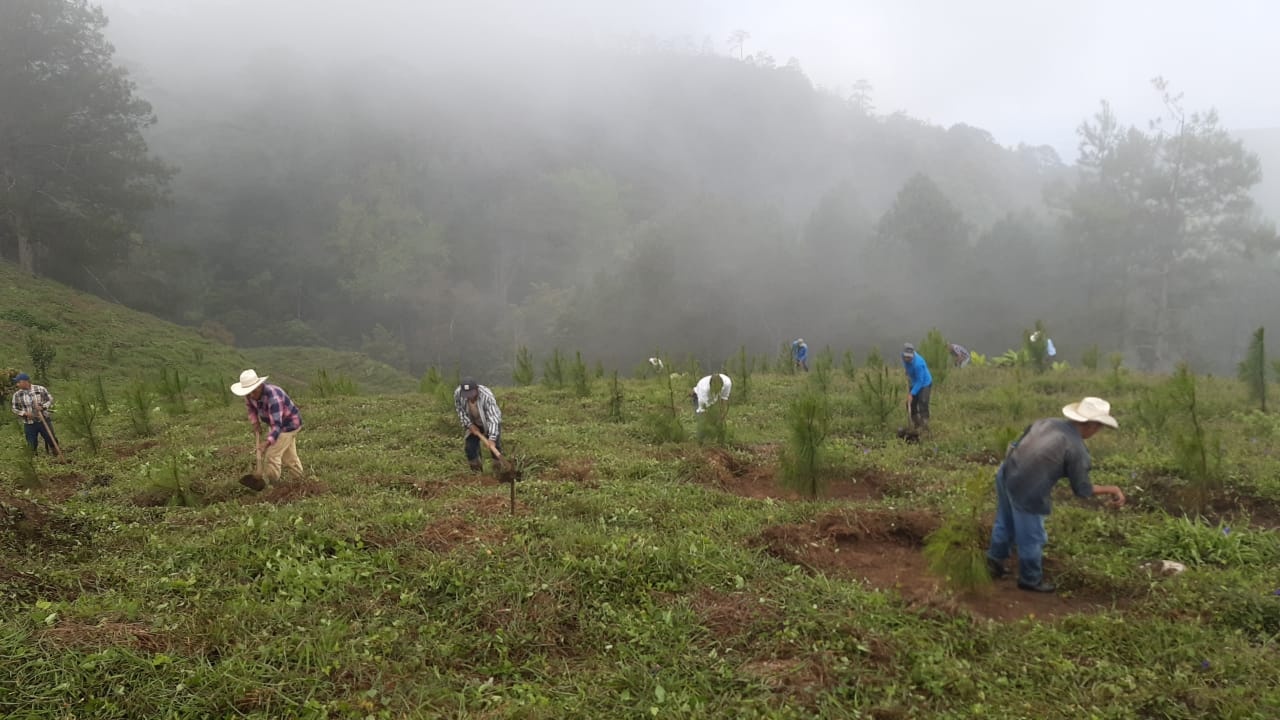Protecting and beginning to restore 50 million hectares of land across Latin America and the Caribbean by 2030 is no easy feat. That’s where Initiative 20x20’s more than 125 partners come in. At its Annual Partners Meeting each year, the country-led alliance’s steering committee recognizes three of its most impactful partners with the Initiative 20x20 Special Awards.
The three prizes reward a pioneering project developer, a financial partner leading a portfolio of projects, and a national government stewarding a strong public program. Together, they represent three of Latin America and the Caribbean’s most successful and inspiring land restoration efforts.
Portfolio Award Winner: Uncommon Cacao

Cacao, a crop native to Central America, was once a staple in local diets. To meet growing global demand, the prized commodity has journeyed far from its traditional roots, leading to exploitative labor practices and the degradation of forests and farms.
Enter Uncommon Cacao, a company that connects smallholder producers directly to the specialty chocolate industry. By effectively tracing economic, social and environmental impact, Uncommon Cacao works with marginalized suppliers to preserve what protects the high quality of their product: prosperous farmers and sustainable agricultural practices.
Uncommon Cacao sources from at least 10 different areas across Central America, the Caribbean, Peru, and Colombia. There, the best conservation practices, which include protecting soil health and paying fair wages, are matched with high-quality cacao beans with distinct flavor profiles. Thanks to the economic opportunity of sustainable cacao, community associations within each region now have the motivation to safeguard and enrich the ecosystems in which they work.
Pomona Impact, an Initiative 20x20 financial partner, has played a key role in developing Uncommon Cacao’s project portfolio. They helped Uncommon Cacao expand beyond its early growth stage: It now has export operations in Belize and Guatemala, as well as distribution services in the United States and the Netherlands
Project Award Winner: Ejido Verde

Michoacán State is Mexico’s top producer of pine resin, a key ingredient in tape, glue, chewing gum, and thousands of everyday products. To save the industry from a 60-year deforestation-related decline, investors and local leaders founded Ejido Verde in 2009 with the belief that local people are the best stewards of their land. To restore the lost pine forests, the company works with farming cooperatives within local “ejidos,” or communities that include indigenous and rural peoples.
Ejido Verde’s unique financing model supports farmers with zero-interest loans, which they can use to purchase superior pine seedlings, technical assistance, or extra labor. The farmers begin repaying the loan only when the trees start producing resin after 10 years, a sustainable financing cycle that allows Ejido Verde to continuously empower more farmers to restore their land. The company also helps each community design plantations in a way that reflects the specific qualities of each piece of land. This maximizes long-term yields for farmers while protecting the trees, improving biodiversity, and restoring soil health.
As of June 2020, Ejido Verde has helped local Indigenous communities maintain 4,262 hectares of trees across 700 farms. The company has now invested in 13 rural and indigenous communities across Michoacán. Its unique long-term vision sets up these communities to produce for the market and protect the environment. By forging strong partnerships with them, Ejido Verde is promoting the social, economic, and environmental health of the region.
Program Award Winner: PROBOSQUE, National Forest Landscape Restoration Strategy of Guatemala

Guatemala’s forest area of 3.5 million hectares extends across multiple ecosystems, providing invaluable environmental services to more than 16 million people. To conserve and restore these natural assets, the government enacted the PROBOSQUE law, a comprehensive policy that uses direct cash payments to support local landowners that are restoring degraded land.
The program, which was established in 2017, embodies a new generation of incentives designed to support the National Strategy for Forest Landscape Restoration, which aims to restore 1.2 million hectares of degraded land by 2045. Over a fixed period of years, PROBOSQUE pays landowners that restore land through techniques like reforestation, agroforestry, silvopasture, natural forest conservation and protection, or riparian forest restoration.
PROBOSQUE is administered by the Guatemalan Forest Institute (INAB), which also acts as the secretariat of the National Restoration Roundtable, a group of different stakeholders that provides strategic advice on implementing the National Strategy.
Through the program, Guatemala has invested US $ 16.36 million per year, for a total of US $65.44 million since its launch. That funding has enabled local communities to begin restoring 82,074 hectares of land. PROBOSQUE and INAB provide a clear example that effective public policies for restoration, like those that Initiative 20x20’s Restoration Policy Accelerator is working to improve, can produce results on the ground.
***
By understanding the local landscapes, putting communities first, and building innovative business models, these award winners prove that it is possible to both protect Latin America’s environment and improve livelihoods through restoration. We hope they serve as inspiration to partners within the Initiative 20x20 network and beyond.
Want to learn more? Sign up for updates on Latin America’s movement to restore land here.
And check out 60+ restoration and forest conservation projects from across Latin America here.